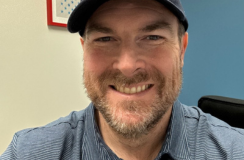Acquiring Minds recorded live on April 13th, 2022.
The episode was a debate about the merits of 2 models of search: self-funded search on one side, traditional search funds on the other.
There were 2 guests, each a proponent of one of the models.
Greg Geronemus acquired, grew, and exited a business with the traditional search fund model, and now invests in searchers himself using the same model.
Robert Graham, acquired and now leads his business as a self-funded searcher, and also now invests in searchers himself using the same model.
Following are the sections of the debate:
- Definitions
- Economics
- Why Are Traditional Terms Fixed?
- CEO vs. Owner
- Flexibility & Optionality
- Risk
- Probability of Close, Probability of Success
- Assembling Your Board, Self-Funded
- Industry
- Who Is Your Model Not For?
Definitions
Greg and Robert provide introductory remarks, and quick definitions of each of the models are given. Greg explains traditional search funds, Robert explains self-funded search.
Economics
The financial benefit to the searcher of each model is debated (passionately), including:
- Terms of each model
- Size of business typically targeted by searchers of each model
- Differences in percentage ownership
- Examples of large acquisitions ($4m+ EBITDA) done by self-funded searchers
Why Are Traditional Terms Fixed?
Greg addresses why the terms offered to searchers in the traditional search fund model are fixed today and have remained so for years.
CEO vs. Owner
Greg and Robert debate how the different ownership structures affect the searcher's oversight and sense of "being a CEO" (with investors as bosses) versus "being an owner", including:
- Is the increased accountability you have in traditional search even a bad thing?
- The potential (if rare) to be fired by your board as a traditional searcher
- Self-funded generally have less board structure & oversight
- Whether traditional search fund entrepreneurs are "employees"
Flexibility & Optionality
Traditional search has 2 well-known firm expectations: that you'll sell the business you acquire to generate liquidity for your investors, and that you'll move to wherever you find a deal. Items discussed:
- Funding the search
- Searching for a very small business
- Geographically-targeted search
- Other flexibility available in self-funded
Risk
The risks of both models are discussed, including:
- Median price of traditional search fund acquisitions
- Debt service coverage ratio (DSCR) contrast between the models
- Personal guarantee that is present in self-funded, and how much of a concern it is
- What happens in traditional search if you never find a deal after 2 years
Probability of Close, Probability of Success
How do the models compare in terms of actually successfully buying a business, and then being successful once the business has been acquired. Items discussed:
- Percentage of traditional searchers who don't acquire
- Quality of mentorship & support provided by investors
Assembling Your Board, Self-Funded
Assembling your board is very different in the two models, with self-funded searchers often not as well positioned to assemble a professional, high-quality board.
Industry
Discussion of whether one model or the other is preferred if you're targeting a particular industry for your acquisition.
Who Is Your Model Not For?
Robert and Greg are both asked for profiles of people for whom their model is not a good fit. Mentioned:
- Geographically focused searchers
- Searchers looking to "buy small"
- How accessible traditional search funds are to people outside the ecosystems from which traditional searchers typically come (certain MBA programs, former PE, veterans)
- Searchers who can't fund 2 years of searching










%20-%20thumbnail.png)






%20-%20thumbnail.png)



%20-%20thumbnail.png)

.png)




%20-%20thumbnail.png)















%20-%20thumbnail.png)































































